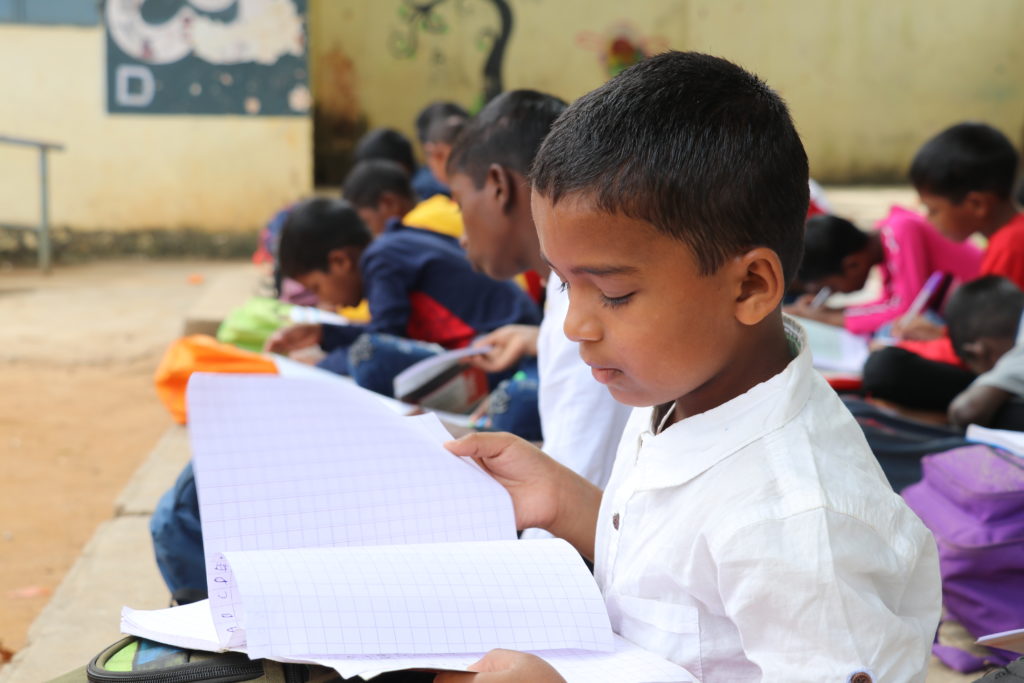Education
- Home
- / Education
NBI works with various age groups and children with different educational needs. While some of them stay with their parents, some reside with us at residential homes. Some have never been to school or are dropouts; while others have challenging behaviours and are addicted to street life.
However, each one of them needs a certain kind of intervention when it comes to education. We, at NBI, have planned educational interventions based on the needs of the children. The focus is to rekindle the joy of learning and to nurture their education.
The Right of Children to Free and Compulsory Education (RTE) Act was passed in 2009. Under this act, children between the age group of 6-14 years who are studying in government or aided schools, are not liable to pay any charges, fees or expenses that prevent them from pursuing education.
However, the implementation of the act on the ground level is slow and still a distant process. The 2020 pandemic has made the situation even grim with schools shutting, leading to many children being forced into child labour.
NBI strongly believes in the power of education and is striving to ensure that every child, especially the vulnerable ones, gets to access his/her right to education.
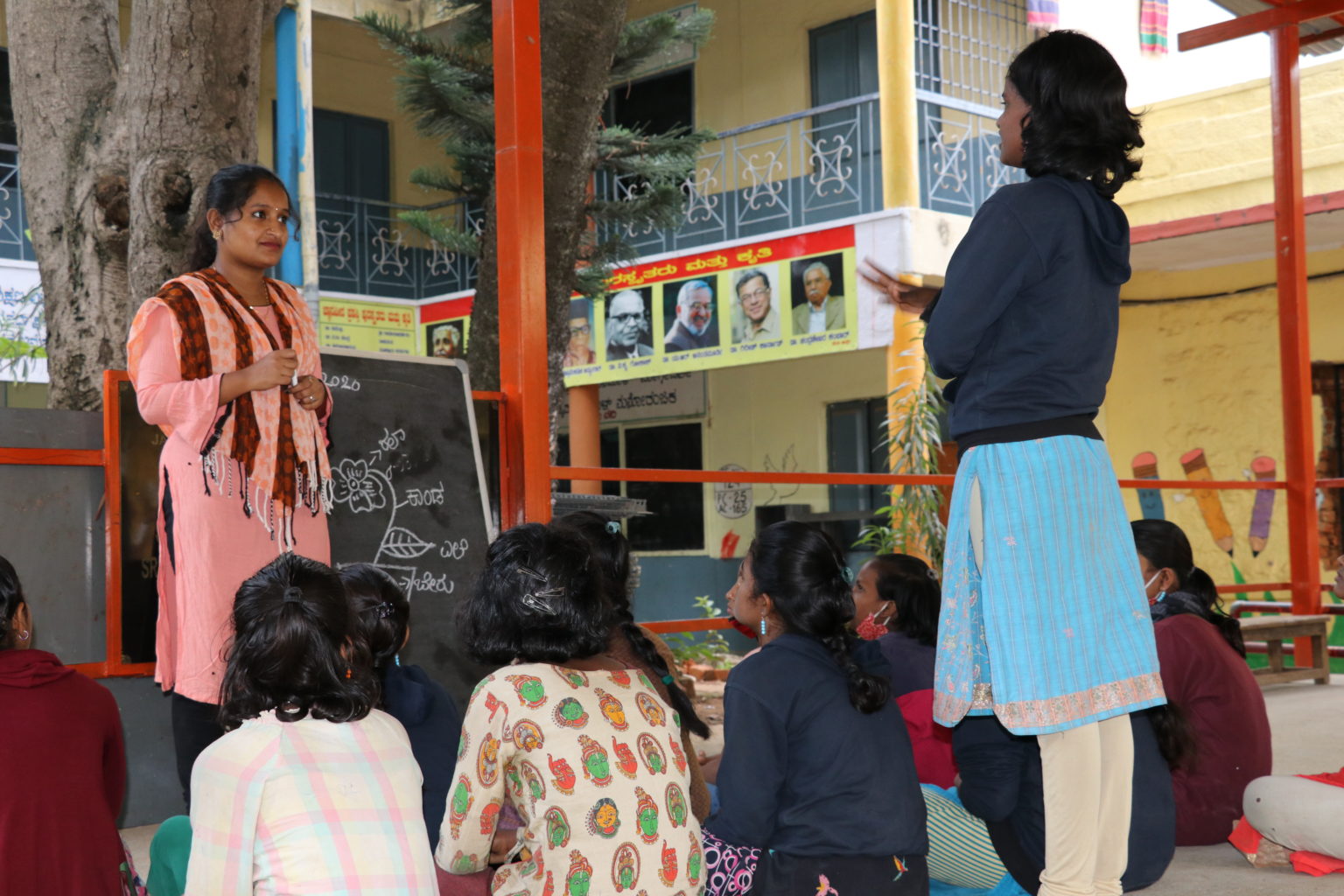
All the children at the residential homes are provided with remedial coaching after their school hours. The ones studying in 1st to 12th standards are made to revise their lessons and get clarification on doubts.
One-on-one attention helps children to open up and be more interactive. Monthly assessments are conducted regularly to track the performance of the children. Based on this, course corrective actions, like curriculum planning, additional classes for a subject or a child are administered. The coaching ensures that children understand their subjects. If not, they are immediately helped with resolutions and solutions.
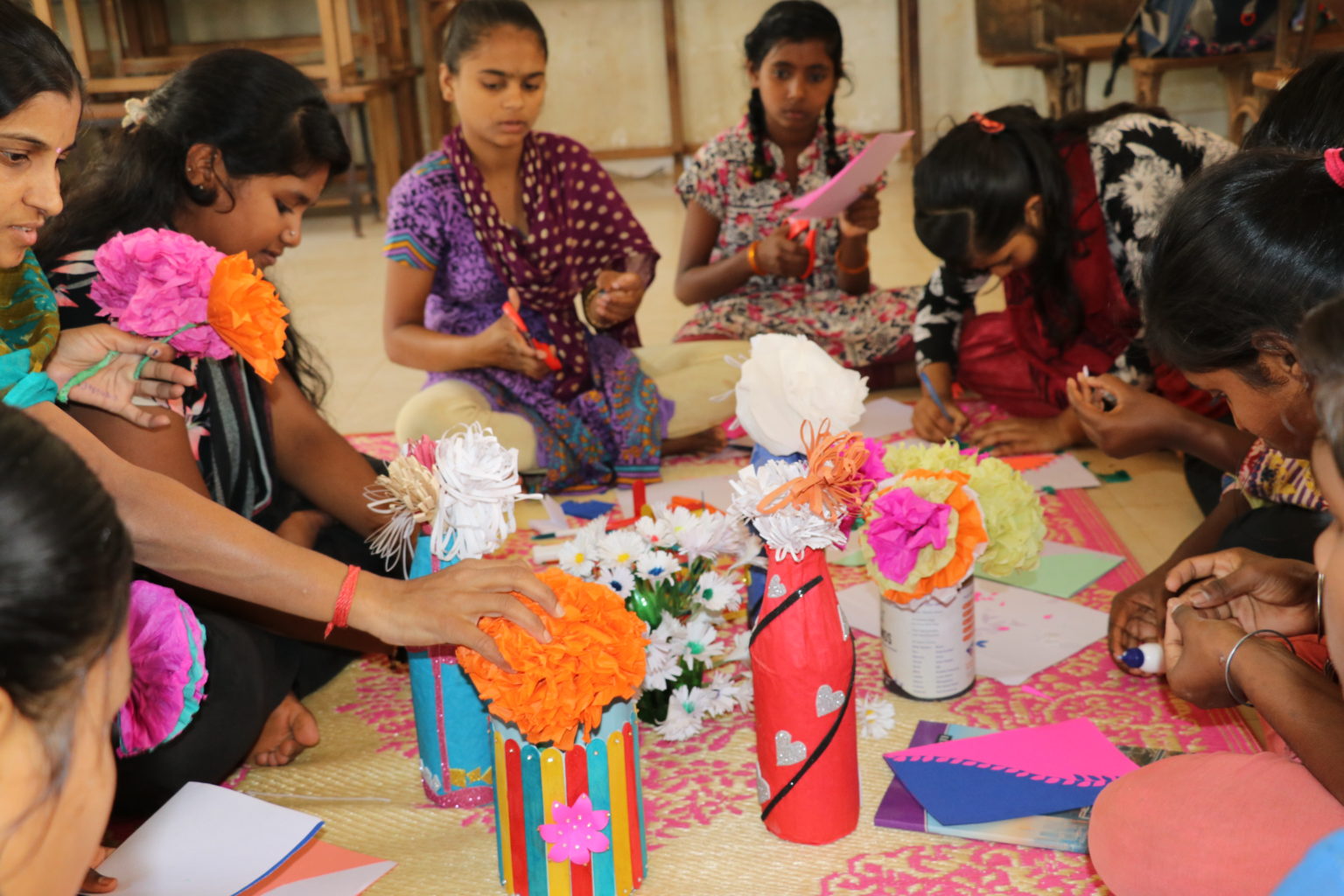
These camps are conducted for children who are either school dropouts or have behavioural issues like aggressiveness, addiction to street life, bad peer influence, etc.
These children are made to participate in a month-long school motivation camp to give up bad habits while inculcating interest in education. The objectives of the camp are
Educating children on ill-effects of street life and adverse health impact due to substance abuse
Inculcating interest in education and admitting to schools
Teaching values and goals in life
Rekindling emotions and strengthening the bond with parents
Post-camp, a common meeting with parents and children is organised. The problems of the child are shared with parents and solutions are identified. Later, children are connected to the bridge school program where they learn the basics of education.
Depending on the ability and age, they are admitted to schools. If the family can care and support the child, then they are sent home. However, if the situation is unfavourable, then children are admitted into NBI residential homes.
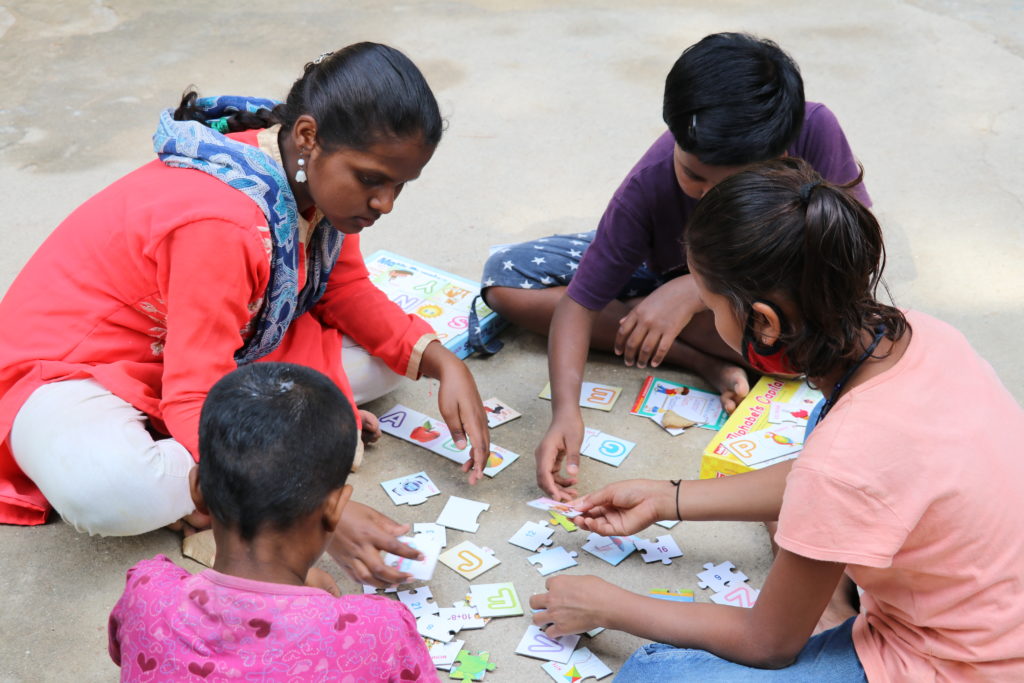
The dropouts or the ones who never been to school require specific intervention before being mainstreamed into regular classes. If children are young (7-12 years), they require special care and attention.
The bridge school program at NBI is planned specifically for such children. The curriculum is engaging and ignites curiosity among young minds. It builds interest and motivates children to look forward to education.
Whether children are staying at the residential homes or undergone the school motivation camp, they may require undivided attention, like bridge school programs. Typically, this program lasts anywhere between 9-months to one-year, post which children are admitted to regular schools.
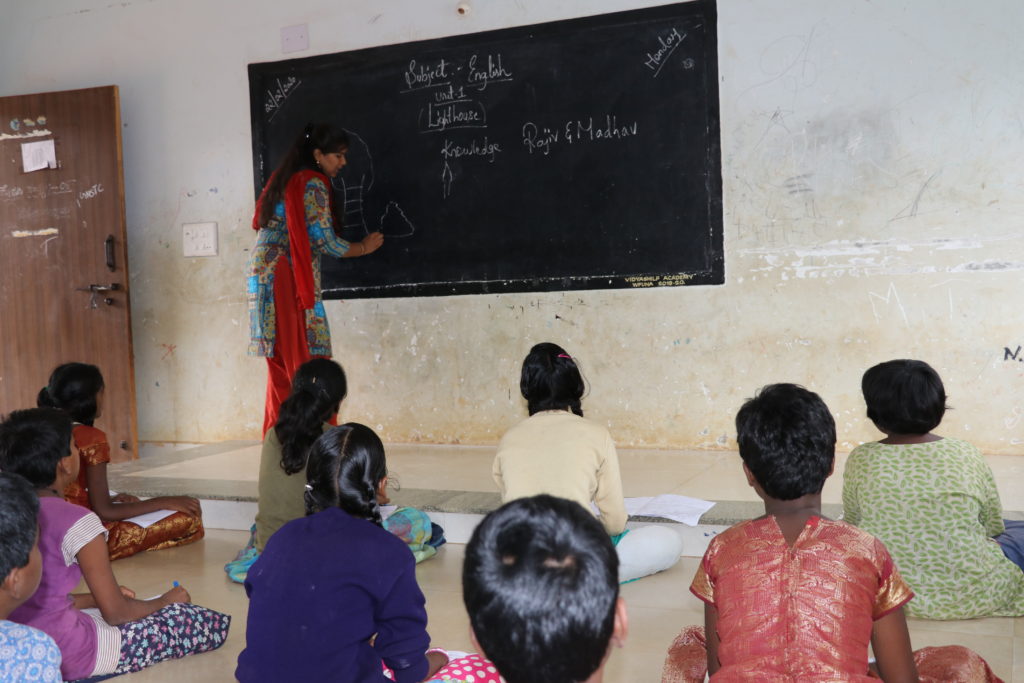
This is for children admitted into government schools after completion of the bridge course at NBI. The ones who are new to schools and studies would need continued hand-holding.
If not, there might be chances of dropouts. Thus, continued support on basic subjects like Kannada, Science, Maths and English is provided through the program. Meanwhile, the children stay with their parents, attend school while attending NBI’s classes in the evening where support for at least three years is provided.
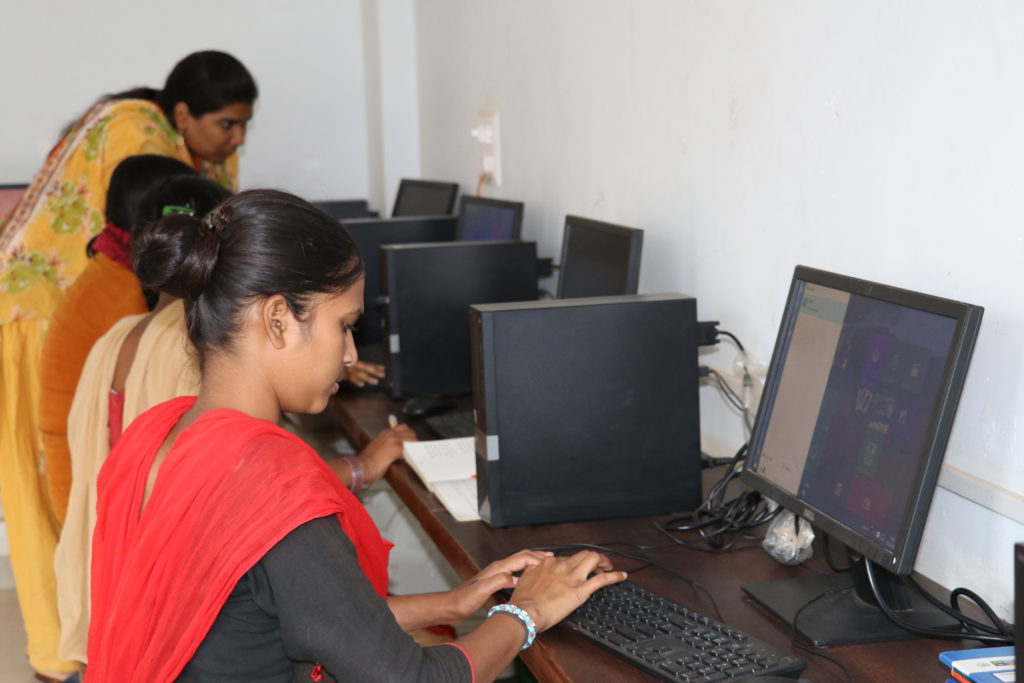
Koppal and Raichur are the backward districts of Karnataka where the current education facilities are inadequate in comparison to other parts of Karnataka. The government schools, here, lack teachers as well as infrastructure.
Further, there is also no access to alternative coaching facilities. Thus, NBI collaborated with E-vidyaloka to help students in rural government schools in the regions of Koppal and Raichur.
In 2017, we began online classes for students in 5th, 6th and 7th standards. The classrooms are digitised, and classes are monitored regularly. So far, more than 1500 students from 25 schools have benefitted from this program.
